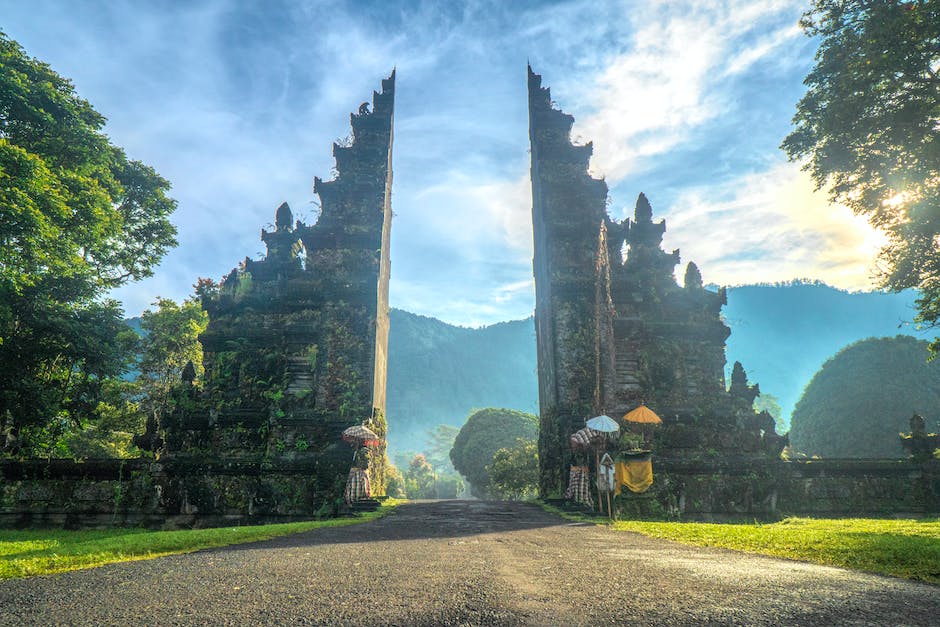Table of Contents
Unwavering Commitment to Democracy: Aung San Suu Kyi’s Political Journey
Introduction
Aung San Suu Kyi, the renowned Burmese politician and Nobel laureate, has been a prominent figure in the fight for democracy in Myanmar. Her unwavering commitment to democracy has shaped her remarkable political journey, making her a symbol of hope and resilience for the people of Myanmar and beyond. This introduction will delve into the key aspects of Aung San Suu Kyi’s political journey, highlighting her struggles, achievements, and the impact she has had on the democratic movement in Myanmar.
Aung San Suu Kyi’s Early Life and Political Awakening

Unwavering Commitment to Democracy: Aung San Suu Kyi’s Political Journey
Aung San Suu Kyi, the iconic leader of Myanmar’s democracy movement, has dedicated her life to the pursuit of freedom and democracy in her country. Her unwavering commitment to these ideals has made her a symbol of hope and inspiration for millions around the world. But what led her to this path of political activism? To understand her journey, we must delve into her early life and the events that shaped her political awakening.
Born on June 19, 1945, in Rangoon, Burma (now Myanmar), Aung San Suu Kyi was the daughter of General Aung San, a national hero who played a crucial role in the country’s struggle for independence from British colonial rule. Growing up in a politically charged environment, she was exposed to discussions about democracy and freedom from an early age. Her father’s dedication to the cause of independence deeply influenced her worldview and set the stage for her future political endeavors.
However, tragedy struck when Aung San was assassinated in 1947, just months before Burma gained independence. This event had a profound impact on young Suu Kyi, who was only two years old at the time. It instilled in her a sense of duty to carry on her father’s legacy and fight for the principles he held dear.
Suu Kyi’s education further shaped her political consciousness. She attended schools in Burma, India, and the United Kingdom, where she was exposed to different political ideologies and philosophies. Her time at Oxford University, where she studied politics, philosophy, and economics, was particularly influential. It was during this period that she developed a deep understanding of democracy and human rights, and she became increasingly aware of the injustices and oppression faced by her fellow countrymen under the military regime in Burma.
In 1988, Suu Kyi’s life took a dramatic turn when she returned to Burma to care for her ailing mother. Little did she know that this visit would mark the beginning of her political journey. The country was in the midst of a pro-democracy uprising, and Suu Kyi found herself thrust into the center of the movement. Inspired by the courage and determination of the people, she emerged as a prominent leader and a powerful voice for change.
In 1989, Suu Kyi co-founded the National League for Democracy (NLD), a political party committed to nonviolent resistance and the restoration of democracy in Burma. The military junta, fearing her growing influence, placed her under house arrest in 1989, a move that would keep her confined for a total of 15 years over the next two decades. Despite her detention, Suu Kyi continued to inspire and mobilize the people of Burma through her writings and speeches, becoming a symbol of resistance against the oppressive regime.
Suu Kyi’s unwavering commitment to democracy and her refusal to compromise her principles have earned her numerous accolades and international recognition. In 1991, she was awarded the Nobel Peace Prize for her nonviolent struggle for democracy and human rights. This prestigious honor further solidified her status as a global icon of democracy.
Aung San Suu Kyi’s early life and political awakening laid the foundation for her remarkable journey as a champion of democracy. From her upbringing in a politically charged environment to her education and the events that unfolded in Burma, every experience shaped her into the leader she is today. Her unwavering commitment to the principles of democracy and her tireless efforts to bring about change have made her an inspiration to people around the world. In the next section, we will explore Suu Kyi’s struggle against the military regime and her eventual rise to power.
Aung San Suu Kyi’s Role in the Pro-Democracy Movement in Myanmar
Aung San Suu Kyi, the Nobel Peace Prize laureate and former political prisoner, has played a pivotal role in the pro-democracy movement in Myanmar. Her unwavering commitment to democracy has made her a symbol of hope and inspiration for millions of people around the world.
Born in 1945, Aung San Suu Kyi is the daughter of General Aung San, the founder of modern-day Myanmar. Growing up in a politically active family, she was exposed to the ideals of democracy and freedom from an early age. However, it was not until later in life that she would fully embrace her role as a political leader.
In 1988, Myanmar was in the midst of a pro-democracy uprising. The military junta, which had been in power since 1962, was facing widespread protests and calls for democratic reforms. It was during this time that Aung San Suu Kyi emerged as a prominent figure in the movement.
She founded the National League for Democracy (NLD), a political party that advocated for democratic principles and human rights. Aung San Suu Kyi’s charisma and eloquence quickly gained her a large following, and she became the face of the pro-democracy movement in Myanmar.
However, her rise to prominence was not without its challenges. The military junta, fearing her influence, placed Aung San Suu Kyi under house arrest in 1989. This would be the first of many periods of detention she would endure over the next two decades.
Despite her confinement, Aung San Suu Kyi remained steadfast in her commitment to democracy. She continued to speak out against the military regime and advocate for political reform. Her unwavering determination and refusal to compromise on her principles earned her the respect and admiration of people both within Myanmar and around the world.
In 1991, Aung San Suu Kyi was awarded the Nobel Peace Prize for her nonviolent struggle for democracy and human rights. The international recognition further solidified her status as a global icon of democracy.
After spending a total of 15 years under house arrest, Aung San Suu Kyi was finally released in 2010. This marked a turning point in Myanmar’s political landscape, as the military junta began to loosen its grip on power. Aung San Suu Kyi wasted no time in reentering the political arena and leading the NLD in the country’s first free and fair elections in decades.
In 2015, the NLD won a landslide victory, securing a majority in both houses of parliament. Aung San Suu Kyi became the de facto leader of Myanmar, although she was constitutionally barred from assuming the presidency due to her foreign-born children.
However, her time in power has not been without controversy. Aung San Suu Kyi has faced criticism for her handling of the Rohingya crisis, in which thousands of Rohingya Muslims were killed and hundreds of thousands were displaced from their homes. Many have accused her of turning a blind eye to the atrocities committed by the military.
Despite the criticism, Aung San Suu Kyi remains a revered figure in Myanmar. Her unwavering commitment to democracy and her tireless efforts to bring about political reform have left an indelible mark on the country’s history. Her journey from political prisoner to de facto leader is a testament to the power of perseverance and the enduring spirit of democracy.
Aung San Suu Kyi’s House Arrest and International Recognition
Aung San Suu Kyi, the iconic leader of Myanmar’s democracy movement, has faced numerous challenges throughout her political journey. One of the most significant chapters in her life was her long period of house arrest, which lasted for a total of 15 years. Despite being confined to her home, Suu Kyi’s unwavering commitment to democracy remained steadfast.
Suu Kyi’s house arrest began in 1989 when the military junta, which had seized power in Myanmar, feared her growing popularity and influence. The junta saw her as a threat to their rule and decided to silence her by confining her to her residence. This move was intended to isolate Suu Kyi from her supporters and prevent her from engaging in any political activities.
During her years of house arrest, Suu Kyi became an international symbol of peaceful resistance against authoritarian regimes. Her unwavering commitment to democracy and non-violence resonated with people around the world, earning her widespread recognition and support. She was awarded the Nobel Peace Prize in 1991 for her courageous struggle for democracy and human rights.
Despite her confinement, Suu Kyi continued to inspire and lead the pro-democracy movement in Myanmar. She communicated with her supporters through letters and occasional visits from trusted individuals. Her words and actions demonstrated her determination to bring about democratic reforms in her country.
The international community rallied behind Suu Kyi, pressuring the military junta to release her from house arrest. Governments, human rights organizations, and activists from all corners of the globe called for her freedom. The United Nations, in particular, played a crucial role in advocating for her release and condemning the military regime’s actions.
Suu Kyi’s house arrest became a symbol of the struggle for democracy and human rights. Her resilience and unwavering commitment to her cause inspired countless individuals and organizations to stand in solidarity with her. The world watched as she endured years of isolation and deprivation, yet remained steadfast in her pursuit of a democratic Myanmar.
Finally, in 2010, Suu Kyi was released from house arrest. Her release was met with jubilation and renewed hope for democratic reforms in Myanmar. However, her journey was far from over. Suu Kyi faced new challenges as she transitioned from a political prisoner to a political leader.
Despite her international recognition and the admiration she garnered, Suu Kyi faced criticism for her handling of the Rohingya crisis. Many accused her of turning a blind eye to the atrocities committed against the Rohingya minority in Myanmar. This criticism tarnished her reputation and raised questions about her commitment to human rights.
Nevertheless, Suu Kyi’s political journey remains a testament to her unwavering commitment to democracy. Her years of house arrest and international recognition solidified her status as a global icon of resistance against authoritarianism. While her leadership may have been marred by controversy, her legacy as a champion of democracy endures.
In conclusion, Aung San Suu Kyi’s house arrest and international recognition played a pivotal role in shaping her political journey. Despite being confined to her home for 15 years, Suu Kyi’s unwavering commitment to democracy remained unshaken. Her release from house arrest marked a new chapter in her life, one that would bring both triumphs and challenges. Suu Kyi’s story serves as a reminder of the enduring power of resilience and determination in the face of adversity.
Aung San Suu Kyi’s Leadership and Challenges in Myanmar’s Transition to Democracy
Aung San Suu Kyi, the Nobel Peace Prize laureate and leader of Myanmar’s National League for Democracy (NLD), has been at the forefront of the country’s transition to democracy. Her unwavering commitment to democratic principles has been evident throughout her political journey, as she has faced numerous challenges and obstacles along the way.
Suu Kyi’s leadership in Myanmar began in the late 1980s when she returned to her home country after years of living abroad. She quickly became a prominent figure in the pro-democracy movement, advocating for political reform and human rights. Her charisma and determination inspired millions of people, both in Myanmar and around the world, to join her cause.
However, Suu Kyi’s path to democracy was not without its challenges. In 1989, she was placed under house arrest by the military junta that ruled Myanmar at the time. Despite her confinement, Suu Kyi continued to be a symbol of hope and resistance, and her popularity only grew stronger. Her unwavering commitment to democracy and her refusal to compromise her principles made her a powerful figure in the fight for freedom and human rights.
After spending a total of 15 years under house arrest, Suu Kyi was finally released in 2010. This marked a turning point in Myanmar’s political landscape, as the country began its transition to democracy. Suu Kyi wasted no time in reentering the political arena, leading the NLD in the 2012 by-elections and winning a seat in parliament. Her party’s landslide victory in the 2015 general elections further solidified her position as a key player in Myanmar’s political landscape.
However, Suu Kyi’s leadership has not been without controversy. Her handling of the Rohingya crisis, in which thousands of Rohingya Muslims were killed and displaced, has drawn criticism from the international community. Many have accused her of turning a blind eye to the atrocities committed by the military, while others argue that she has not done enough to address the issue.
Despite these challenges, Suu Kyi remains committed to the democratic process and has made efforts to address the Rohingya crisis. She has called for an investigation into the violence and has expressed her commitment to finding a peaceful and sustainable solution. While her response may not have satisfied everyone, it is clear that Suu Kyi is dedicated to upholding democratic principles and working towards a more inclusive and just society.
Suu Kyi’s political journey is a testament to her unwavering commitment to democracy. From her early days as a pro-democracy activist to her current role as Myanmar’s de facto leader, she has consistently fought for political reform and human rights. Despite the challenges she has faced, Suu Kyi remains a symbol of hope and inspiration for millions of people around the world.
In conclusion, Aung San Suu Kyi’s leadership and challenges in Myanmar’s transition to democracy have been marked by her unwavering commitment to democratic principles. Her determination and resilience in the face of adversity have made her a powerful figure in the fight for freedom and human rights. While her leadership may not be without controversy, it is clear that Suu Kyi remains dedicated to upholding democratic values and working towards a more inclusive and just society. Her political journey serves as an inspiration to all those who believe in the power of democracy to bring about positive change.
Q&A
1. Who is Aung San Suu Kyi?
Aung San Suu Kyi is a Burmese politician and Nobel Peace Prize laureate.
2. What is Aung San Suu Kyi’s political journey?
Aung San Suu Kyi’s political journey includes her leadership role in the National League for Democracy (NLD) party in Myanmar and her long-standing struggle for democracy and human rights in the country.
3. What is meant by “Unwavering Commitment to Democracy” in relation to Aung San Suu Kyi?
“Unwavering Commitment to Democracy” refers to Aung San Suu Kyi’s steadfast dedication and determination to promote democratic principles and values in Myanmar, despite facing numerous challenges and obstacles.
4. What is the significance of Aung San Suu Kyi’s political journey?
Aung San Suu Kyi’s political journey is significant as she has been a symbol of resistance against authoritarian rule and a champion for democracy in Myanmar. Her struggle and leadership have inspired many around the world.
Conclusion
In conclusion, Aung San Suu Kyi’s political journey has been characterized by an unwavering commitment to democracy. Despite facing numerous challenges and sacrifices, she has consistently advocated for democratic principles and human rights in Myanmar. Her leadership and resilience have made her an iconic figure in the fight for democracy, inspiring people around the world. However, recent events have raised concerns about her commitment to these ideals, highlighting the complexities and challenges of political leadership. Nonetheless, Aung San Suu Kyi’s legacy as a champion of democracy remains significant.




